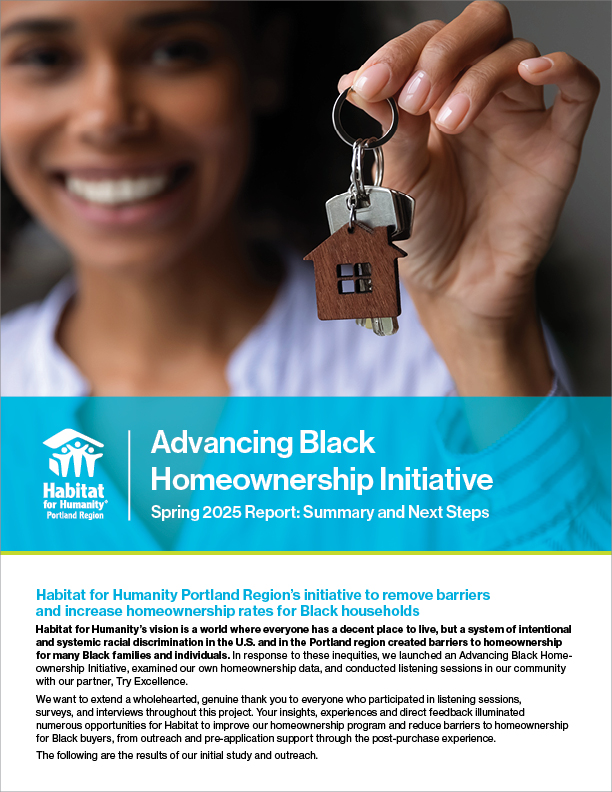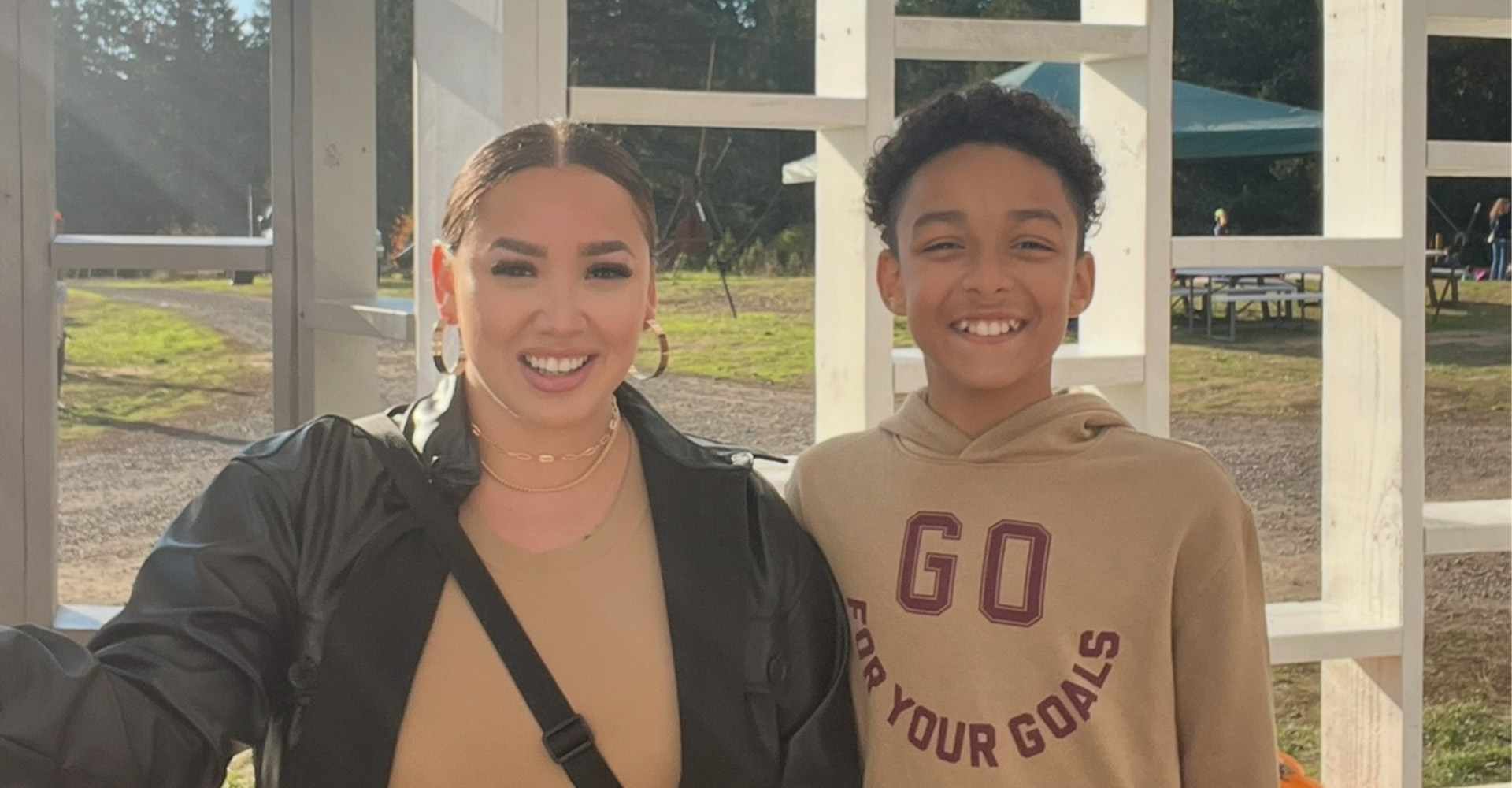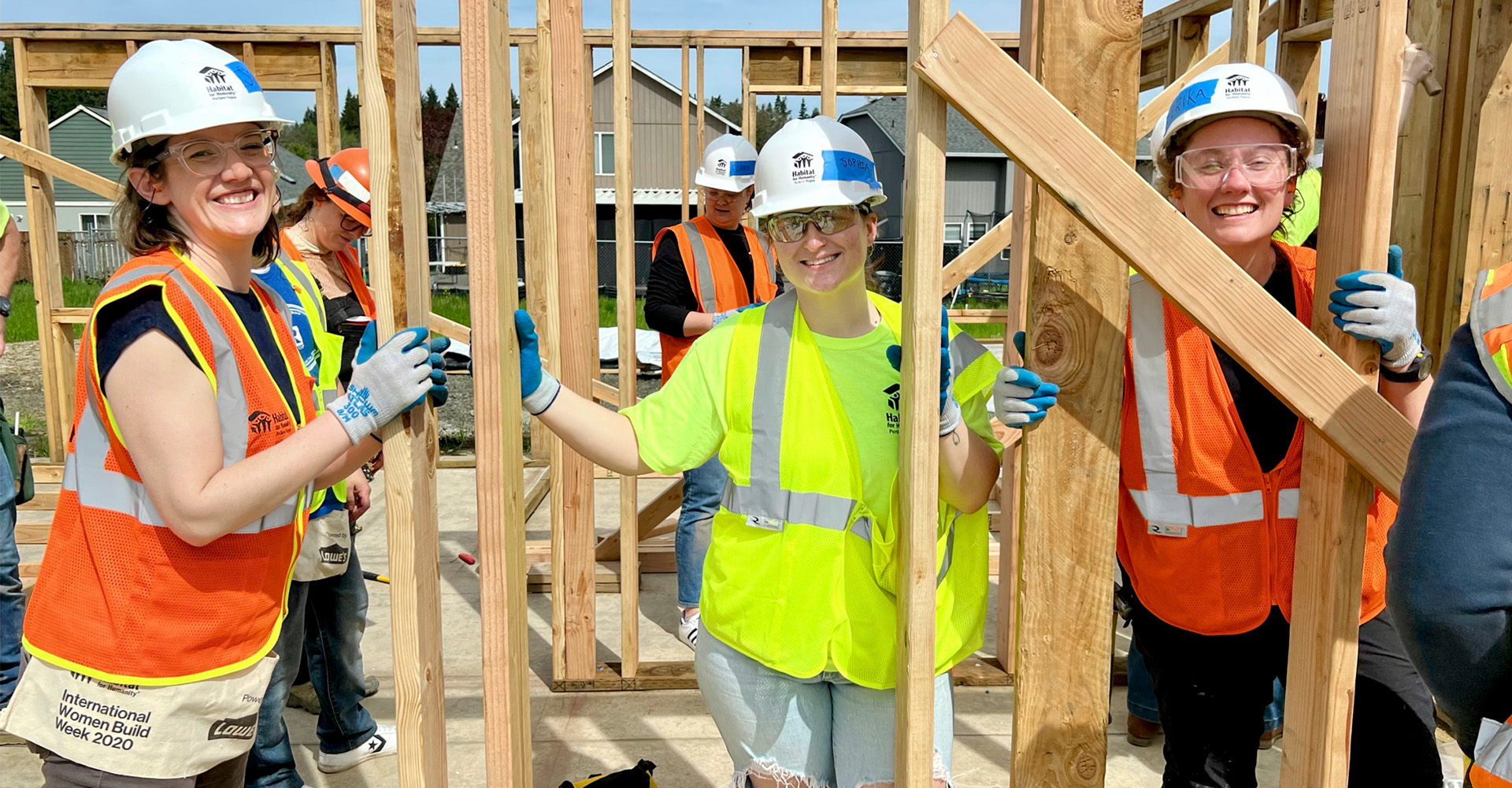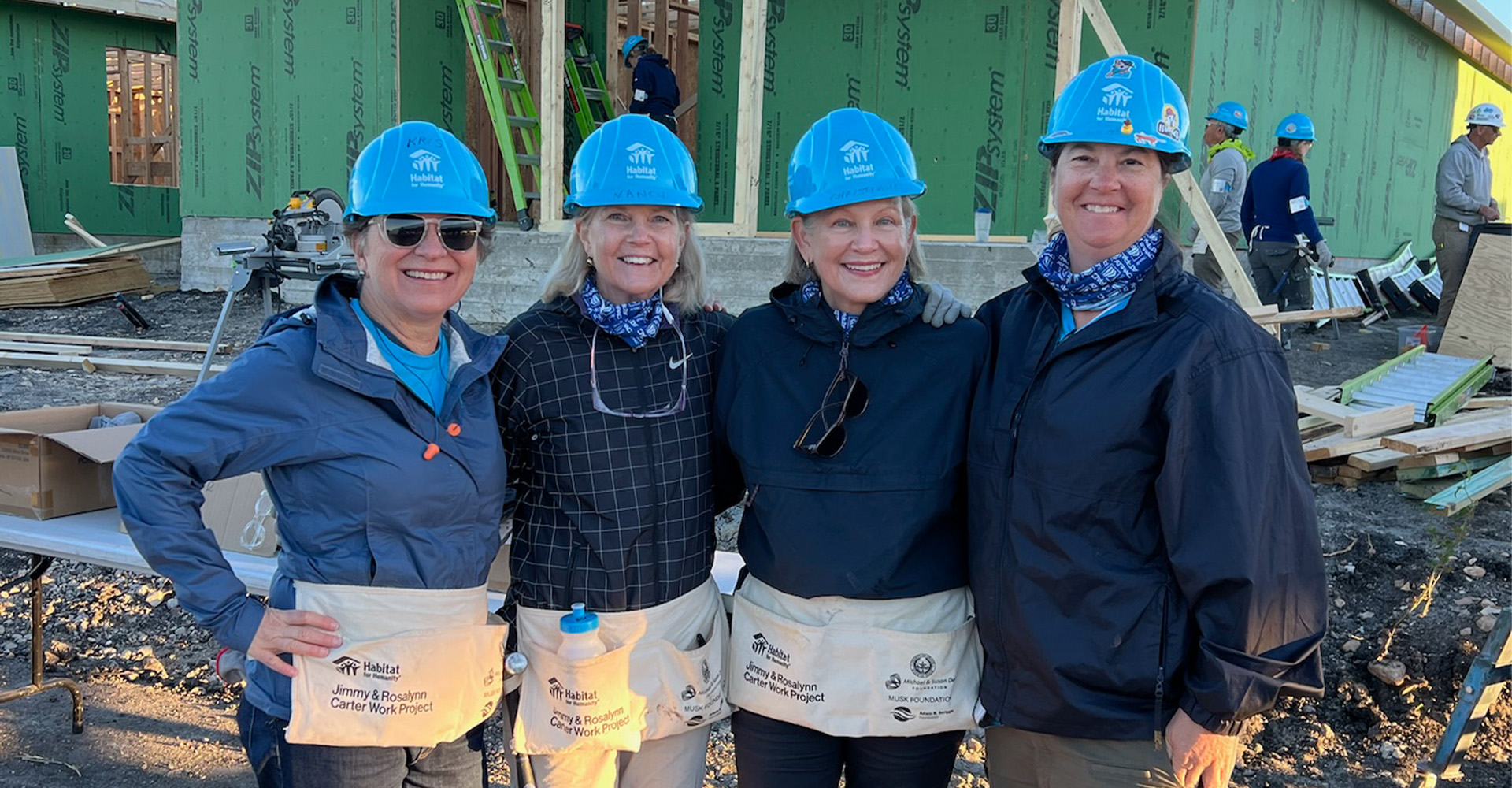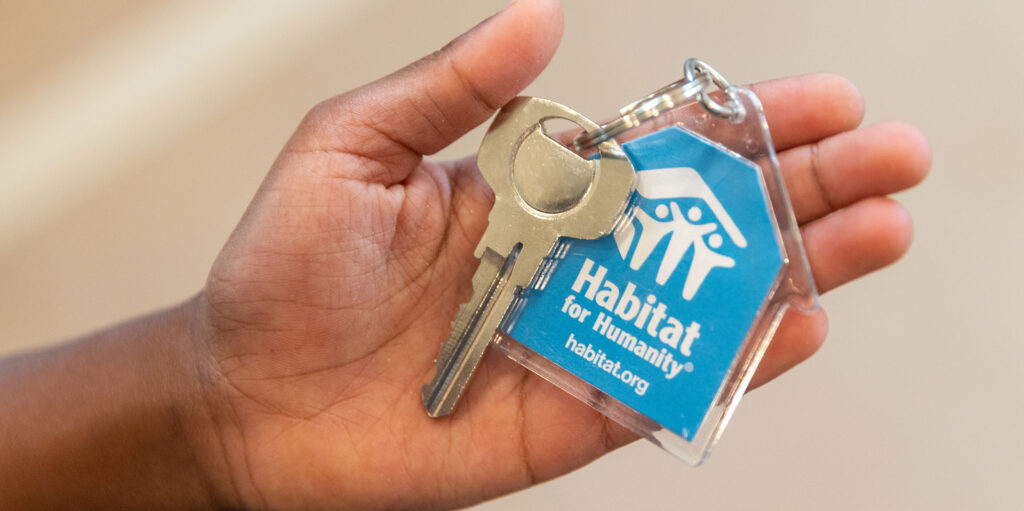
As part of our 2023-2027 strategic plan, Habitat for Humanity Portland Region launched an Advancing Black Homeownership Initiative focused on removing barriers to homeownership for Black households. This initiative is part of a national strategy led by Habitat for Humanity International, alongside many affiliates across the United States who are developing comprehensive strategies for advancing Black homeownership in their communities.
Habitat for Humanity’s vision is a world where everyone has a decent and affordable place to live, but a structure of intentional and systemic racial discrimination in the U.S. has created barriers to homeownership for many Black families, including here in our community. We encourage you to read our four-part race and housing series if you would like to learn more about the local history behind this discrimination.
In response to these inequities, we launched an Advancing Black Homeownership Initiative, examined our own homeownership data, and conducted listening sessions in our community with our partner, Try Excellence. We want to extend a wholehearted thank you to everyone who participated in listening sessions, surveys, and interviews throughout this project. Your insights, experiences, and direct feedback illuminated numerous opportunities for Habitat to improve our homeownership program and reduce barriers to homeownership for Black buyers.
The Next Steps – This Year
Below, you will find some of the immediate next steps that we plan to make this year as a result of our initial study, outreach, and feedback from the community.
Removing Criminal Background Checks from the Application Process
In July, Habitat Portland Region’s Board of Directors approved a significant policy change to make our homeownership program more equitable and accessible. Criminal background checks will no longer be required for Habitat homeownership applicants.
This decision is the result of extensive community engagement and research conducted through our Advancing Black Homeownership initiative, which identified background checks as a barrier that, while neutral at first glance and applied evenly, can cause fear, confusion, and mistrust—especially for Black, Indigenous, and Latine communities disproportionately impacted by the criminal justice system. In addition, background checks are only a snapshot in time; they do not account for changes in the household members, such as children growing into adults and people moving in and out of the home as time goes on, and do not predict future behavior. Criminal background checks are not the norm for homeownership programs, whether on the traditional market or otherwise. This means that, while Habitat’s policy was intended to keep communities safe, we learned that it was creating issues of trust and re-traumatization for folks who otherwise qualify for Habitat homes. This policy change reflects our commitment to centering fairness, trust, and dignity in our program while creating a more inclusive path to homeownership. While we will continue to conduct mandatory national sex offender registry checks for all household members age 18 and older (as required by Habitat for Humanity International), removing criminal background checks aligns with homeownership industry norms and reduces unnecessary trauma for applicants.
Review Sweat Equity Policy
Staff will review the sweat equity policies through the lens of community feedback received and Habitat’s internal racial equity filter. We will explore how these policies might be revised to reduce barriers to the selection and participation of Black homebuyers in Habitat’s program.
Introduce Home Tours
The introduction of home tours will allow community members to see Habitat homes in person, showcasing the sustainable features, locations, neighborhood makeup, and variety of homes built. Habitat will also explore inviting homeowners to home tours to answer questions, share their experiences with Habitat, and build connections with prospective applicants. An emphasis will be placed on inviting Black homeowners. Homeowners would be compensated for their time.
Design a New Staff Position
Habitat will design and build capacity for a new position that will focus on strengthening partnerships with organizations that can provide in-depth homebuyer counseling and financial support for prospective Black homebuyers. This role will also develop strong relationships with the wider community and provide ongoing support to Black prospective homebuyers.
Develop an Educational Campaign
Habitat will develop an educational marketing campaign to increase transparency and trust in Habitat’s program for prospective applicants. It will also aim to correct misconceptions identified during this outreach about Habitat’s program, homes, and other concerns such as: Why does Habitat build multi-family homes? How does Habitat calculate my mortgage? How do property taxes and tax abatement work? How do they impact my mortgage?
Beyond the First Year
Beyond the next year, Habitat will explore ways we can offer financial support and additional resources that reduce barriers to accessing homeownership for Black buyers, including:
- Exploring the development of a special purpose credit program for Black homebuyers.
- Explore the development of a new homeownership readiness program that would cover the fees for homebuyer readiness and counseling for prospective buyers.
- Using first- and secondhand data resources to identify and prioritize opportunities to build neighborhoods where people most want to live, whenever possible.
- Continue to identify and invest in partnerships that build stronger pathways from renting to homeownership for Black individuals and families. These partnerships would also offer opportunities to build vital knowledge around homeownership, home maintenance, and transferring wealth to the next generation.
- Track engagement data to understand who is engaging with Habitat’s outreach efforts, applying to Habitat’s homeownership program, and becoming successful homeowners. This ensures we are working toward closing the homeownership gap for Black individuals and families in a meaningful way.
- Cross-tabulate data from the upcoming homeownership impact survey to learn about non-immigrant Black homeowners’ experiences with homeownership over time.
